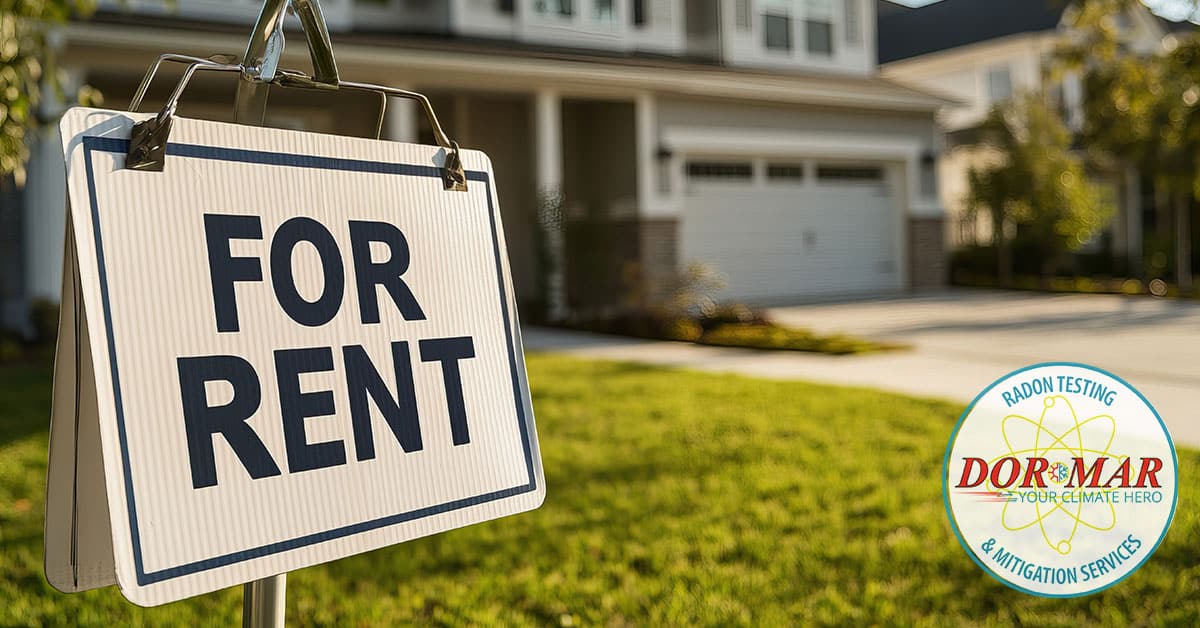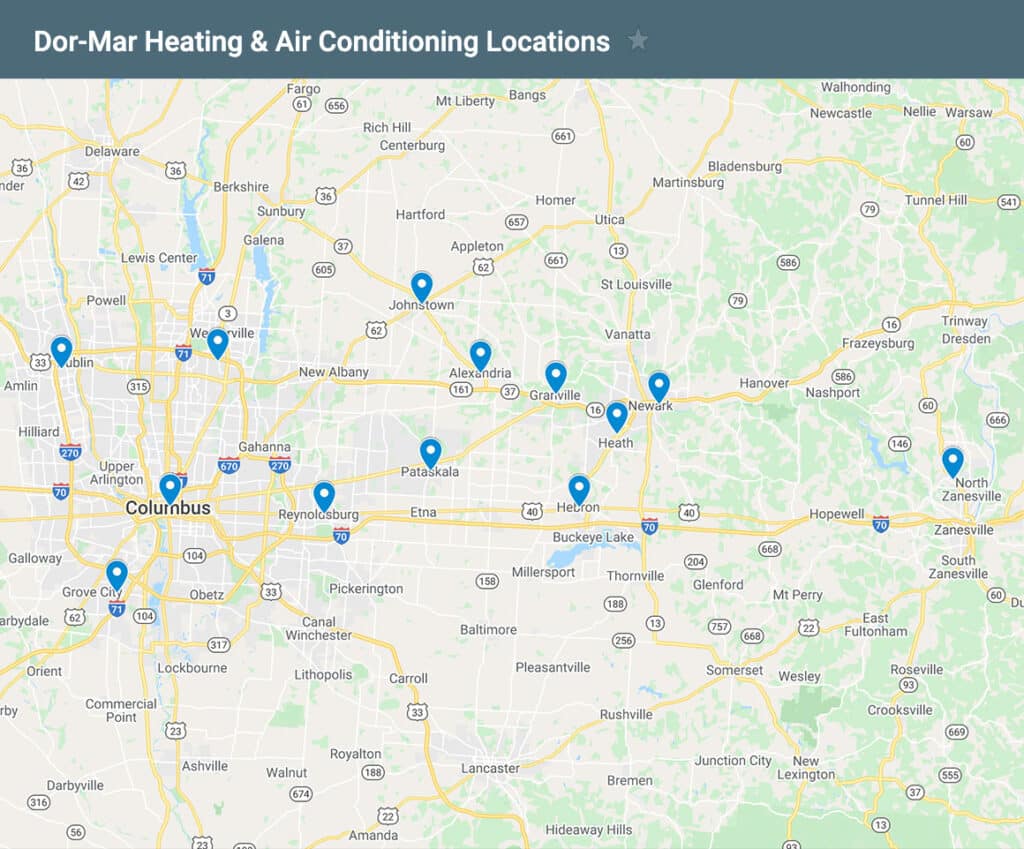As a landlord, you have a legal and ethical obligation to provide a safe living environment for your tenants. While many property owners focus on visible dangers like mold, lead paint, or faulty wiring, there’s a silent killer that often goes unnoticed in Ohio: radon gas. This odorless, colorless, and tasteless radioactive gas can pose serious health risks, and failure to address it could lead to costly lawsuits. If you’re renting out a property, it’s crucial to understand the legal and financial consequences of radon exposure and take proactive steps to protect yourself and your tenants.
This is NOT legal advice. If you are a landlord, we recommend you consult with your attorney regarding this subject.
What Is Radon and Why Is It Dangerous?
Radon is a naturally occurring radioactive gas that forms when uranium in soil, rock, and water breaks down. It can enter homes through cracks in the foundation, gaps around pipes, and even through well water. Prolonged exposure to radon is the second leading cause of lung cancer in the United States, responsible for an estimated 21,000 deaths per year according to the Environmental Protection Agency (EPA).
Since radon is invisible and has no smell, tenants may not realize they are at risk until it’s too late. That’s why landlords must take radon exposure seriously, as failure to mitigate this hazard can lead to lawsuits and substantial financial penalties.
Landlord Responsibilities Regarding Radon
Depending on the state and local regulations, landlords may have legal obligations to test for radon, disclose known radon levels, or remediate high radon levels before renting out a property. The EPA recommends mitigation when radon levels exceed 4.0 picocuries per liter (pCi/L).
Here are some key responsibilities that landlords should be aware of:
- Testing for Radon – Some states require landlords to test for radon before renting a property.
- Disclosing Radon Levels – If radon testing has been conducted, landlords may be legally required to disclose the results to prospective tenants.
- Mitigating High Radon Levels – If radon levels exceed the EPA’s recommended threshold, landlords may be obligated to remediate the problem.
- Providing Radon Awareness Materials – Some jurisdictions require landlords to educate tenants about radon risks.
- Complying With State Laws – Radon regulations vary by state, and non-compliance can lead to hefty fines and legal actions.
Can Tenants Sue Their Landlords for Radon Exposure?
Yes, tenants can and have sued landlords for radon exposure, especially if the landlord failed to disclose known radon levels or ignored requests for testing and remediation. Tenants may sue based on:
- Negligence – If a landlord fails to test for or address radon issues, they could be held liable for any health effects suffered by tenants.
- Breach of Warranty of Habitability – Many states require landlords to provide habitable living conditions, which includes addressing serious health hazards like radon.
- Fraudulent Concealment – If a landlord knew about high radon levels and failed to disclose them, tenants may claim fraudulent concealment in court.
- Wrongful Death Lawsuits – In extreme cases where radon exposure leads to lung cancer and death, surviving family members may file a wrongful death lawsuit.
Real-Life Lawsuits Against Landlords for Radon Exposure
Radon-related lawsuits are becoming more common as awareness of the health risks grows. Here are a few notable legal cases:
- Illinois Landlord Sued for Radon Exposure – Tenants sued their landlord after discovering dangerously high radon levels in their apartment. The landlord was forced to pay for mitigation and additional damages.
- Wisconsin Apartment Complex Case – A landlord faced legal action after multiple tenants developed lung-related illnesses due to prolonged radon exposure.
- Class Action Lawsuit in Pennsylvania – Several tenants filed a class-action lawsuit against a property management company for failing to conduct radon testing.
These cases highlight the legal and financial risks of ignoring radon concerns. Landlords who fail to take action may face not only lawsuits but also negative publicity and loss of rental income.
How to Protect Yourself as a Landlord
To avoid legal troubles and ensure tenant safety, landlords should take proactive steps to address radon issues. Here’s what you should do:
1. Conduct Regular Radon Testing
Radon levels can fluctuate, so it’s important to test properties every two years or after significant renovations. Hire a certified professional or use an EPA-approved radon test kit.
2. Disclose Radon Test Results to Tenants
Even if your state doesn’t require disclosure, transparency builds trust with tenants and can help protect you from future lawsuits.
3. Install a Radon Mitigation System if Necessary
If radon levels exceed 4.0 pCi/L, install a radon mitigation system to lower concentrations. These systems usually involve sub-slab depressurization, which prevents radon from entering the home.
4. Include Radon Safety Clauses in Lease Agreements
Consider adding a radon disclosure clause in lease agreements. This informs tenants about any testing done and allows you to demonstrate compliance with safety recommendations.
5. Stay Informed About State and Local Laws
Radon regulations vary by location, so check your state’s landlord-tenant laws to ensure you remain compliant.
6. Educate Tenants About Radon Risks
Providing tenants with an EPA radon guide can help them understand the risks and encourage cooperation in mitigation efforts.
Financial Consequences of Ignoring Radon Issues
Failing to address radon concerns doesn’t just lead to lawsuits; it can have serious financial repercussions:
- Legal Fees and Settlement Costs – Lawsuits can cost landlords tens or even hundreds of thousands of dollars in legal fees and settlements.
- Decreased Property Value – A home with known radon issues that haven’t been mitigated may lose significant market value.
- Loss of Rental Income – If tenants break their lease or potential renters are scared away, you could suffer long-term revenue loss.
- Insurance Issues – Some insurance policies may not cover radon-related claims, leaving landlords responsible for out-of-pocket costs.
Final Thoughts on Radon for Landlords
Radon exposure is a serious health risk that landlords cannot afford to ignore. The legal, financial, and ethical implications of failing to address radon issues can be severe. Testing for radon, disclosing results, and mitigating high levels are simple yet crucial steps that protect both tenants and property owners. By taking proactive measures, landlords can avoid lawsuits, maintain property value, and ensure the safety of their tenants. Don’t wait until it’s too late—test for radon today and protect your investment!
Don’t Wait – Get Your Rental Properties Tested for Radon
If you are not sure if your properties have issues with radon gas, it’s best to get them tested. And it’s easy as a quick phone call Dor-Mar Radon Testing & Mitigation at (740) 675-1103 to arrange for a radon test. Or you can use the convenient form on our Radon Testing page.















